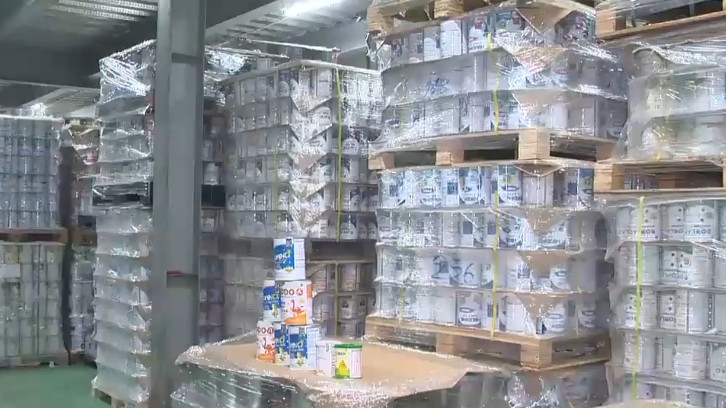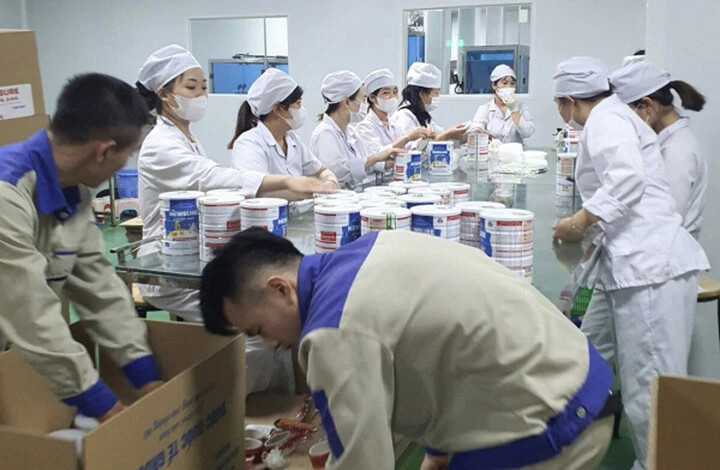The fake milk scandal is a wake - up call, not only about business ethics but also about institutional capacity. Without decisive reform, similar disasters will recur.
The counterfeiting of hundreds of milk brands - essential products particularly for vulnerable groups such as children, the elderly, and pregnant women - is not only a legal offense but a profoundly inhumane act that endangers public health and erodes social trust.
But perhaps the more troubling question is: how could such a large - scale operation run for four years without detection or intervention?
This exposes critical gaps across multiple areas - from product quality management and market inspections to local government oversight - all of which must be addressed.
Profit too high, risk too low: Crime thrives when laws are weak

The real loophole in food safety lies not in legislation but in enforcement.
From a regulatory perspective, Vietnam’s food safety management system remains fragmented and overlapping. Multiple ministries and agencies share responsibility, yet no unified authority exists.
This diffusion of accountability makes it difficult to assign blame when violations occur, leaving no one truly answerable.
Supervision remains largely superficial, relying on periodic inspections. Meanwhile, violations are often highly organized and constantly evolving.
The absence of proactive monitoring, early warning mechanisms, and rapid response capabilities is a critical flaw.
Furthermore, existing penalties lack deterrent power. For crimes like food fraud, which directly threaten human lives, current administrative fines and even criminal charges are too lenient. When the profit is immense and the risk is minimal, lawbreakers are emboldened.
Finally, we lack a strong foundation of business ethics. Relying solely on laws without cultivating corporate culture, social responsibility, and compassion for consumers renders even the strictest legal frameworks vulnerable to manipulation.
Four key reforms to fix systemic loopholes:
First, consolidate food safety management under a single authority - or at least establish an effective coordination mechanism with clearly defined responsibilities.
Second, transition from manual oversight to smart governance, leveraging big data, traceability, and digital technologies to monitor the entire supply chain.
Third, toughen penalties and enforce the law rigorously, especially in cases of organized and dangerous misconduct.
Fourth, foster ethical responsibility in business through education, media outreach, and the promotion of "responsible food" standards.
In short, only when intelligent regulation is paired with responsible business culture can we close the gap in food safety management.
Self - declared products with no post - checks: A dangerous loophole

In this case, 305 powdered milk products were self - declared by companies in Hoa Binh province. According to officials, businesses submitted declarations and received approval, but since they didn't sell locally, post - verification was impossible.
This reveals a serious flaw in the state’s mechanism for overseeing self - declared products - a system originally designed to simplify administrative procedures but now exploited to evade legal and quality oversight.
In essence, self - declaration relies on trust and responsibility: companies disclose product information voluntarily, while government agencies monitor for violations.
Yet in this case, trust was abused. Businesses continuously changed legal identities and submitted paperwork in one location while selling products elsewhere, escaping regulatory scrutiny.
When local authorities in Hoa Binh claim they cannot perform checks because sales occurred outside their jurisdiction, it indicates a systemic problem, not just an enforcement failure. I see two key issues:
First, the post - check mechanism lacks inter - provincial coordination and clear jurisdictional responsibilities, creating regulatory "gray zones" where no authority takes responsibility.
Second, there's no unified national database to cross - check company information across provinces or detect red flags - like frequent legal identity changes or mass declarations in a short time.
To address this, I propose the following solutions:
Establish a national database of self - declared products, integrated from central to local levels, linked with enterprise registration and market inspection systems. If a business changes its legal identity frequently or declares an abnormally high number of products, the system must issue alerts.
Clarify post - verification responsibilities based on the product’s place of sale, not where the paperwork was submitted. Regulatory bodies should have full authority to inspect and penalize violations in the areas where products are distributed, even if the initial declarations were filed elsewhere.
Enforce strict penalties for legal identity manipulation and exploiting legal loopholes to avoid inspections. Such conduct should be treated as organized fraud, subject not only to administrative fines but also criminal prosecution in severe cases.
Self - declaration can be a step toward a transparent and business - friendly environment. But without smart oversight, even well - intentioned policies become tools for misconduct. This case is a sobering lesson that our control systems must be built not on blind trust, but on verifiable, accountable trust.
Dr. Nguyen Si Dung
Former Deputy Head of the Office of the National Assembly